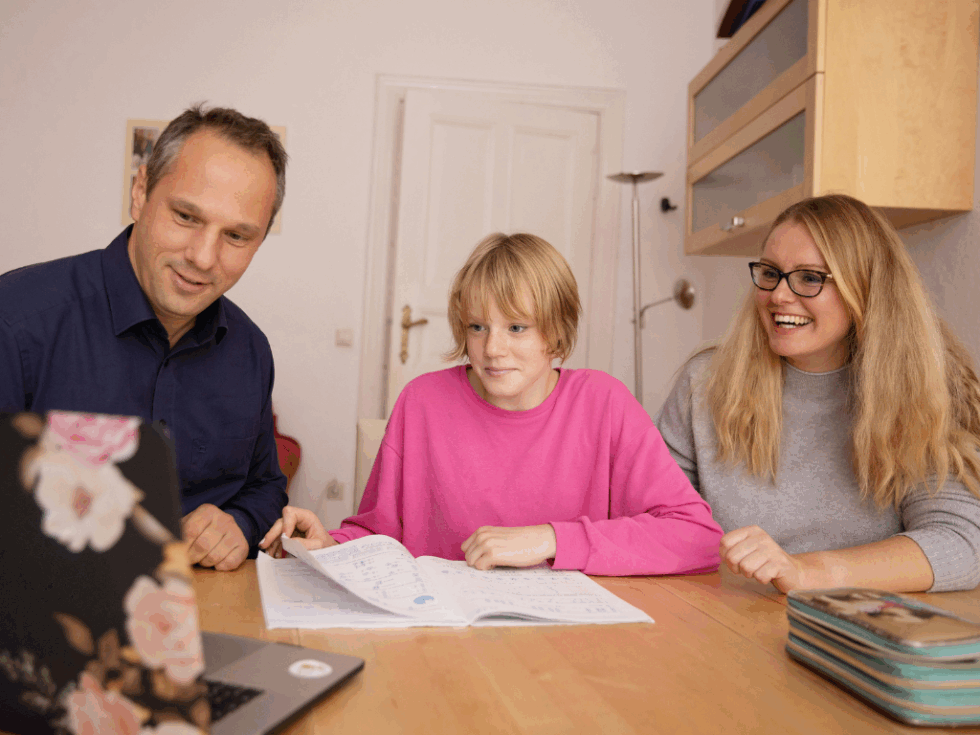
Help Your Child with Test Anxiety
WHAT’S THE ISSUE: If you’ve ever tried to gently encouraged your child to take deep breaths when anxiety takes over, or told them to “think positive,” only to hear, “I’ve tried that… it just doesn’t work,” please know you’re not alone—and I’m here to help. Watching your child struggle with Test Anxiety, whether they’re still in school or facing re-sits as an adult, can feel overwhelming. Sometimes the usual advice and quick fixes just aren’t enough to help a child who is experiencing Test Anxiety. But there are effective strategies that can really make a difference.
Remember, what worked for you might not be what your child needs—and that’s perfectly okay. Every child is different, and there’s no one-size-fits-all solution when it comes to managing anxiety. This isn’t about what worked for you; it’s about finding the right approach to truly support your child. So, I invite you to keep an open heart and mind as we explore another practical, compassionate way that can help your child feel more confident and calm during this challenging time.
UNDERSTANDING WHY "JUST TAKE A DEEP BREATH" DOESN'T ALWAYS WORK
While deep breathing is often recommended for calming anxiety, it can sometimes make things worse—especially if your child’s anxiety or panic reaches a high level. This is particularly true for children with asthma or those who experience anxiety as a tightness or tension in their chest.
Think about it: for someone with asthma, focusing on the throat or chest—the very areas that feel unsafe—can actually increase their anxiety. So when your child is already feeling overwhelmed and you say, “Just take a deep breath,” your intentions are kind and caring, but the effect might not be helpful.
From my experience working with learners who struggle with Test Anxiety and report experiencing the anxiety like a physical tension in their chest also find the instruction to “take deep breaths” triggering. Without additional calming techniques—like tapping or other grounding exercises—drawing attention to that tense area can unintentionally heighten their discomfort.
It’s also important to recognize that Test Anxiety varies widely in intensity. Just because you experienced some anxiety around exams as a student doesn’t mean your child’s experience is the same. Their emotional and physical response might be much more intense than what you remember or experienced.
Acknowledging that your child’s experience of anxiety may be very different from yours is a crucial first step. It helps you understand that simply talking them through it might not be enough—no matter how much you want to help. This doesn’t mean you’re failing as a parent or caregiver. It means your child may genuinely benefit from professional support tailored to their unique needs.
HOW ANXIETY AFFECTS YOUR CHILD'S BRAIN AND BEHAVIOR
When a learner’s anxiety crosses a certain threshold, their stress levels spike—and this has a direct impact on how their brain functions during an exam. Excessive stress can temporarily shut down the part of the brain responsible for higher-level thinking and problem-solving—the prefrontal cortex. This means that in the exam room, your child might suddenly blank out, have an emotional meltdown, or even experience a full-blown panic attack.
In the days and weeks leading up to an important test or exam, too much anxiety can also trigger self-sabotaging behaviors. Your child might avoid consistent, organized revision or become overly dependent on reminders and nagging just to get started on studying. These behavioral patterns can feel frustrating, but they’re often rooted in deeper emotional and physical responses.

These self-sabotaging habits are often held in place by a combination of:
-
Negative thoughts like “I’m stupid,” “I’m not good enough,” or “I can’t do this.”
-
Negative emotions such as overwhelm, embarrassment, anxiety, worry, dread, self-doubt, or a huge fear of failure.
-
Unpleasant physical sensations including a racing heart, fatigue, stomach aches, or tension headaches—especially common during exam season when a student’s stress levels are above a certain threshold.
Understanding how high levels of anxiety affects your child’s brain and behavior is a key step toward helping them break free from these patterns and build healthier, more effective study habits.
Evidence-Based STrategies To Help your Child with TEST ANXIETY
When a learner participates in a series of EFT (Emotional Freedom Techniques) Tapping sessions with a skilled and experienced EFT Practitioner, it can make a significant difference in how they manage academic stress and Test Anxiety. Rather than turning to negative coping strategies like doom scrolling, emotional eating, or procrastination—which may provide temporary relief but don’t truly address the root of the problem—EFT Tapping helps your child face their anxiety head-on and develop healthier emotional responses.
For students who struggle with resistance to studying and procrastination, EFT Tapping strategies can be a powerful method to reduce that inner block and improve study habits. When your child is ready to engage in this process, it boosts their motivation and ability to prepare effectively for tests and exams. Being well-prepared naturally reduces Test Anxiety, because confidence grows from competence. Academic success isn’t just about “thinking positive”—it requires real effort, and EFT helps your child overcome the emotional barriers that get in the way of putting in that work.
There’s also another group of students I work with—those who don’t avoid studying but still experience intense Test Anxiety that affects their performance. These students may have studied thoroughly, yet when faced with the test, they blank out or forget what they’ve learned. For them, the priority is not working on their procrastination but on working in a targeted way to reduce the overwhelming emotional and physical reactions triggered by test-taking situations.
In EFT sessions, we focus on gently reducing the emotional intensity linked to past negative test experiences and clearing the anxious feelings and physical sensations that arise when your child thinks about upcoming exams. This process helps calm the mind and body, allowing your child to access their knowledge more easily and perform to their true potential. When we calm the body down, learners organically experience a cognitive reframe on negative limiting beliefs (“I’m stupid”, “I’m not good at tests/exams”) in an organic way, without them having to repeat it 20 times to themselves every day in order to re-program their mind.
By working with an experienced EFT Practitioner, your child can learn practical emotional tools that support both their academic performance and overall well-being—helping them move beyond anxiety and toward success.
HOW TO FIND A QUALIFIED EFT PRACTITIONER
If your child is struggling with Test Anxiety, working with a qualified EFT (Emotional Freedom Techniques) Practitioner can provide the expert support and proven strategies they need to overcome these challenges and thrive academically.
An experienced practitioner will create a safe space for your child, help them address the root causes of their anxiety, and guide them through effective tapping techniques tailored to their unique needs.
Search Certified Directories: Look for practitioners listed in reputable directories such as the EFT International Directory, where all members are certified and adhere to professional standards and ethics. It allows you to filter by location, specialty, and language.
Consider Specialization: Choose a practitioner who has experience working with children, teens, or academic stress, and whose approach resonates with your family’s needs.
Check Credentials: Ensure your practitioner is certified, maintains ongoing professional development, and abides by a code of conduct.
Schedule an Initial Consultation: Many practitioners offer an initial consultation online so your child can meet them, and you can discuss their specific challenges and see if it’s a good fit.
Take the Next Step
You don’t have to navigate this alone. Explore practitioner directories and reach out to a certified EFT professional who can help your child build confidence, manage anxiety, and achieve their academic goals. With the right support, your child can move from overwhelm to empowerment—one step at a time.
EFT TAPPING FOR SCHOOL ANXIETY RESEARCH
More than 30 of these 300+ research papers have not only tested the effectiveness of EFT for academic stressors (test-taking and giving an assessed presentation) – all have found EFT Tapping an effective intervention.
TOP EFT BOOKS FOR BEGINNERS
Stapleton, P. (2019) The Science Behind EFT: A Proven Stress Management Technique for Mind and Body.
Stapleton, P. (2023) Memory Improvement Through EFT Tapping: A Way to Boost Recall and Clarity.
SAMPLE OF RESEARCH PAPERS ON EFT’S EFFECTIVESS FOR ACADEMICS
Aremu, A. O., & Taiwo, A. K. (2014). “Reducing Mathematics Anxiety Among Students with Pseudo-Dyscalculia in Ibadan through Numerical Cognition and Emotional Freedom Techniques: Moderating Effect of Mathematics Efficacy.” African Journal for the Psychological Studies of Social Issues, 17(1), 113–129.
Benor, D. J., Ledger, K., Toussaint, L., Hett, G., & Zaccaro, D. (2009). “Pilot study of Emotional Freedom Technique (EFT), Wholistic Hybrid derived from EMDR and EFT (WHEE) and Cognitive Behavioral Therapy (CBT) for treatment of Test Anxiety in University Students” Explore, 5(6). Randomized Controlled Clinical Trial.
Boath, E. Stewart, A. Carryer, A. (2013). “Is Emotional Freedom Techniques (EFT) Generalizable? Comparing Effects in Sport Science Students Versus Complementary Therapy Students.” Energy Psychology Journal, 5(2). doi 10.9769.EPJ.2013.5.2.EB.AC.AS.SU
Boath, E., Stewart, A., Carryer, A. (2013). “Tapping for Success: A Pilot Study to Explore if Emotional Freedom Techniques (EFT) Can Reduce Anxiety and Enhance Academic Performance in University Students.” Innovative Practice in Higher Education, 1(3).
Gaesser, A. H., & Karan, O. C. (2017). “A Randomized Controlled Comparison of Emotional Freedom Technique and Cognitive-Behavioral Therapy to Reduce Adolescent Anxiety: A Pilot Study.” Journal of Alternative and Complementary Medicine, 23(2), 102-108. Randomized Controlled Clinical Trial. doi:10.1089/acm.2015.0316
Gaesser, A. H. (2014). “Interventions to Reduce Anxiety for Gifted Children and Adolescents.” Doctoral Dissertations, 377. Randomized Controlled Clinical Trial. http://digitalcommons.uconn.edu/dissertations/377
Jain, S., & Rubino, A. (2012). “The Effectiveness of Emotional Freedom Techniques (EFT) for Optimal Test Performance: A Randomized Controlled Trial.” Energy Psychology: Theory, Research, & Treatment, 4(2), 13-24. Randomized Controlled Clinical Trial. doi:10.9769.EPJ. 2012.4.2.SJ
Lambert, M. T., Smith, S. E.; Moss, S., Kirshbaum, M. N. (2022) “Emotional Freedom Techniques (Tapping) to Improve Wellbeing and Reduce Anxiety in Primary Classrooms”, Australian Journal of Teacher Education, 7 (3). https://ro.ecu.edu.au/ajte/vol47/iss3/5/
Sezgin, N., & Özcan, B. (2009). “The Effect of Progressive Muscular Relaxation and Emotional Freedom Techniques on Test Anxiety in High School Students: A Randomized Controlled Trial.” Energy Psychology: Theory, Research, and Treatment, 1(1), 23-30. Randomized Controlled Clinical Trial.
Sezgin, N., Ozcan, B., Church, D., (2009). “The Effect of Two Psychophysiological Techniques (Progressive Muscular Relaxation and Emotional Freedom Techniques) On Test Anxiety in High School Students: A Randomized Blind Controlled Study.” International Journal of Healing and Caring, 9(1). Randomized Controlled Clinical Trial.
Stapleton, P., Mackay, E., Chatwin, H., Murphy, D., Porter, B., Thibault, S. Pidgeon, A. (2017). “Effectiveness of a School-based Emotional Freedom Techniques Intervention for Promoting Student Wellbeing.” Adolescent Psychiatry, 7(2), 112-126. Randomized Controlled Clinical Trial.
MEET ELENI

Eleni Vardaki is an Advanced EFT Practitioner (Level 3). She is certified and accredited in skillful tapping with EFT International, one of the world’s leading EFT Tapping trainers. She works with individuals, schools, and companies. Her therapeutic coaching and training services support the well-being of kids, teens, and adults worldwide via telehealth.



